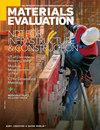Bridge Inspection – Progression of Bridge Inspection Toward Preservation and Corrosion Mitigation for Improving Asset Management
IF 0.3
4区 材料科学
Q4 MATERIALS SCIENCE, CHARACTERIZATION & TESTING
引用次数: 0
Abstract
The primary intent of bridge inspection is safety. Thus, the focus during the initial development of bridge inspection guidelines, including National Bridge Inspection Standards (NBIS), was on making sure structures are safe for the traveling public. NBIS are mandated by federal statute at 23 U.S.C. 144 and implemented under 23 CFR 650 subpart C. Most changes since the inception of NBIS have been due to failures, but recently the focus has shifted to include bridge/ asset management. As such, there has been an increased emphasis on using inspection data for bridge management purposes and on preservation to make sure these structures are not only safe but also can be maintained cost-effectively to minimize life cycle costs. This requires shifting the focus from predominantly visual inspection to supplementing visual inspections with advanced technologies. In this paper, the authors discuss the changes that have occurred since their 2009 Materials Evaluation article.桥梁检查——桥梁检查朝着保护和防腐的方向发展,以改善资产管理
桥梁检查的主要目的是安全。因此,在最初制定桥梁检查指南(包括国家桥梁检查标准(NBIS))期间,重点是确保结构对出行公众的安全。NBIS由《美国法典》第23卷第144节的联邦法规授权,并根据《美国联邦法规》第23篇第650子部分C实施。自NBIS成立以来,大多数变化都是由于失败造成的,但最近重点已转移到包括桥梁/资产管理。因此,人们越来越重视将检查数据用于桥梁管理和保护,以确保这些结构不仅安全,而且能够进行经济高效的维护,从而最大限度地降低生命周期成本。这需要将重点从主要的目视检查转移到用先进技术补充目视检查。在这篇论文中,作者讨论了自2009年材料评估文章以来发生的变化。
本文章由计算机程序翻译,如有差异,请以英文原文为准。
求助全文
约1分钟内获得全文
求助全文
来源期刊

Materials Evaluation
工程技术-材料科学:表征与测试
CiteScore
0.90
自引率
16.70%
发文量
35
审稿时长
6-12 weeks
期刊介绍:
Materials Evaluation publishes articles, news and features intended to increase the NDT practitioner’s knowledge of the science and technology involved in the field, bringing informative articles to the NDT public while highlighting the ongoing efforts of ASNT to fulfill its mission. M.E. is a peer-reviewed journal, relying on technicians and researchers to help grow and educate its members by providing relevant, cutting-edge and exclusive content containing technical details and discussions. The only periodical of its kind, M.E. is circulated to members and nonmember paid subscribers. The magazine is truly international in scope, with readers in over 90 nations. The journal’s history and archive reaches back to the earliest formative days of the Society.
 求助内容:
求助内容: 应助结果提醒方式:
应助结果提醒方式:


